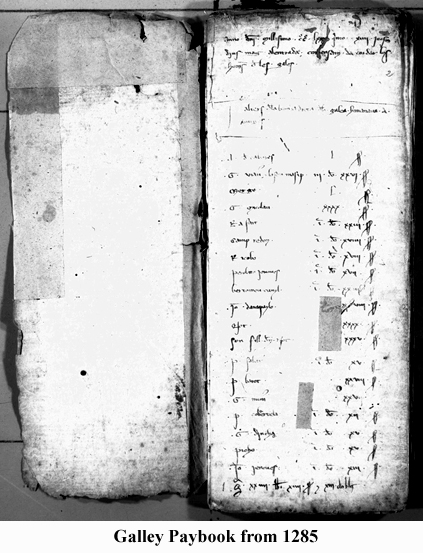Unlike the typical medieval fleet that was assembled for a specific mission and time period, it became clear to Peter III and the curia that the Catalan-Aragonese fleet would have to be organized to operate year-round for several years. Peter, probably on the advice of the large contingent of Hohenstaufen refugees at court, decided to pattern the fleet organization of the Office of the Admiral. The office had been created officially by Frederick II with issuance of the Capitula pertinentia ad Officium Ammirata in 1239, though its origins go back to the Norman period. The office had been effectively dissolved by Charles of Anjou, but Peter reinstated it while at the same time introducing Aragonese concepts to its administration. The Office of the Admiral became one of the most important positions in the curia and Roger of Lauria was instrumental in organizing it from the beginning.

The office was responsible for virtually every aspect of the operation of the fleet. It oversaw the operation of the arsenals, the construction and maintenance of the various vessels, recruitment and pay of the crews and mercenaries, procurement of supplies and material, spying and the planning of operations (Click image to see examples of the pay record). Besides this, for most of the war, the office was also responsible for the the collection of the fleet tax from the Sicilian population and the import-export fees at the various harbors. To carry out all of these duties Roger had an army of notaries, nuncii, commisarii, scribes and subofficiales working for him. They all worked in various sub-offices and answered directly to Roger. They were also instrumental in providing the accountings for their offices which would later be correlated to produce the fleet account required by the king every two years or so.
Roger of Lauria's ability to run this organization efficiently is one of the primary reasons the Catalan-Aragonese fleet had repeated success against an opponent with significantly more manpower and material. The office was run so effeciently that, contrary Roger's critics, the office seldom ran a deficit nor did it require tax money from the Crown of Aragon. The fleet did run into temporary shortfalls and Roger had to float substantial no-interest loans to the fleet from time to time. To learn more about the Office of the Admiral, its origins and operation see: Sea Power in the Medieval Mediterranean: The Catalan-Aragonese Fleet in the War of the Sicilian Vespers.

